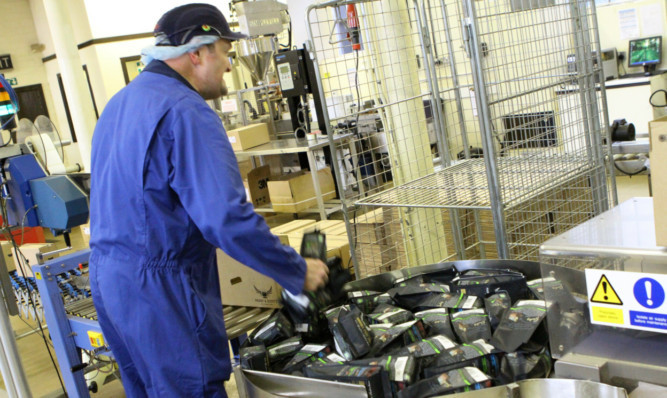A coffee culture has swept the UK with a staggering 70 million cupfuls consumed every day.
One long-standing Dundee company has made a significant contribution to the boomtime for British baristas.
James Aimer Ltd has quietly plied its trade as a importer and producer of coffee and tea from a converted jute mill in Milnbank Road.
It is now undergoing a rebranding to broadcast its success in a market where it feels it can boost sales and growth.
A refreshed corporate identity has ushered in a new website, brochure and social media channels, with a major research programme geared to provide the best service and products.
Sales director James Aston said: “The aim is to lead the market, not just exist within it.”
James Aimer has not been a household name in coffee because it has not wanted to be.
It imports coffee beans from more than 20 countries and blends, roasts, grinds and packages them for the out-of-home market own-label branded coffees for the wholesale trade.
Focusing on quality and consistency, its coffees are enjoyed by customers in hotels, restaurants, independent coffee shops and workplaces all over the UK under other brand names.
For commercial reasons managing director Eric Duncan keeps secret the identities of Aimer’s wholesale customers but there are many of them.
Last year the firm produced enough fresh coffee for 110 million cups and sufficient instant coffee for 25m cups. It also made 40 million cupfuls of tea.
Mr Duncan said: “There are very many customers all over the country and beyond who are drinking our coffee and tea, and who don’t know it.
“That is deliberate because we are in the wholesale market and that is where we see our future.”
The firm was formed in Dundee in 1884 when James Aimer became one of the first importers of coffee and tea to Scotland.
It had passed into the hands of a multi-national company when 13 years ago Mr Duncan, who had joined the company from school, saw a greater potential in Aimer standing on its own feet.
He led a management buy-out and the firm has not looked back, helped in part by the start of Britain’s coffee culture.
The firm’s turnover has more than doubled in Mr Duncan’s time and this year it is expecting a 9% increase in sales of fresh coffee in the out-of-home wholesale market.
Aimer is aggressively looking at opportunities to respond to that growth.
“Many workplaces have fresh coffee machines, and there are also coffee shops in places like DIY stores and garden centres,” Mr Duncan said.
“This trend is continuing and this is on top of hotels and restaurants.”
Last year there were 19,000 coffee outlets in the UK with an annual turnover of £7.2 billion.
By 2020 there are projected to be 27,000 outlets with a turnover of £16.5bn.
That is a lot more Americanos, espressos and filter coffees to be sold and James Aimer is determined that as many of them as possible will be “made in Dundee”.
